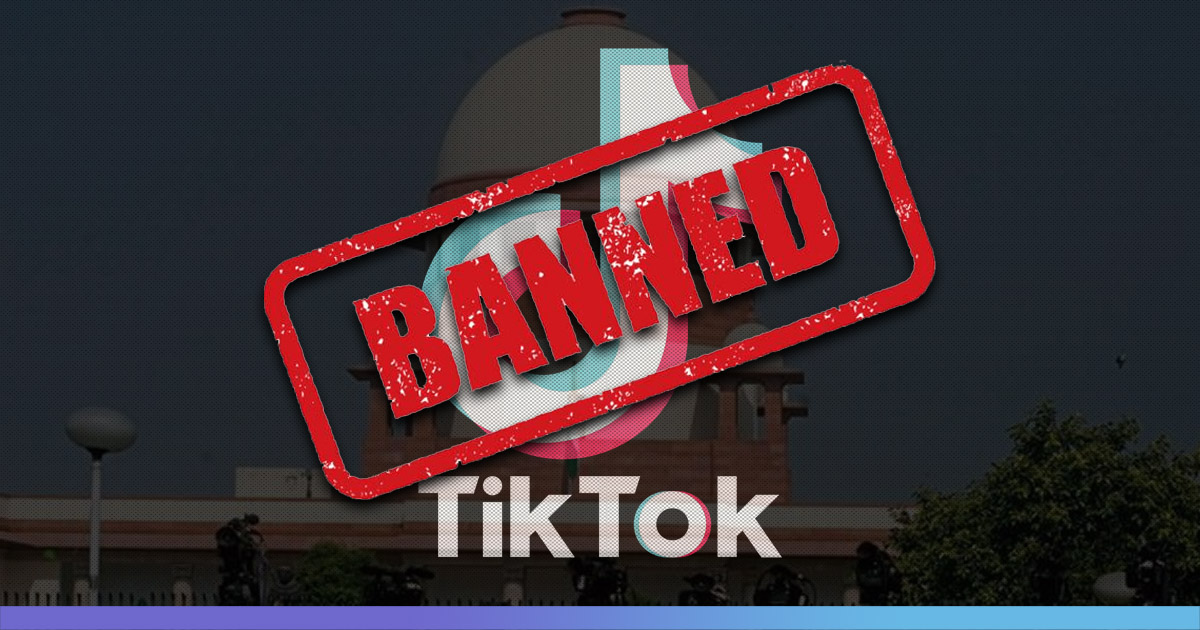After the Supreme Court refused to stay the ban, Google and App Inc have removed the viral video sharing app, TikTok from the Play store and App Store in India. The move by the Ministry of Electronics and Information Technology came after the apex court refused to stay an earlier order by the Madras High Court to ban the app.
Why has the app been banned?
The Madras High Court on April 16 not only refused to lift the ban on the app but also directed to appoint senior advocate Arvind Datar as an independent counsel in the case to understand the implications of the app. The next hearing of the case is scheduled to be on April 24. On the same day, TikTok welcomed the decision and in an emailed statement said, “We welcome the decision of the Madras High Court to appoint Arvind Datar as amicus curiae (independent counsel) to the court. We have faith in the Indian judicial system, and we are optimistic about an outcome that would be well received by over 120 million monthly active users in India, who continue using TikTok to showcase their creativity and capture moments that matter in their everyday lives.” While the app isn’t available for download anymore, those who have it pre-installed can continue to use it.
Meanwhile, the Bench of Chief Justice of India Ranjan Gogoi and Justice Sanjiv Khanna will next hear the case on April 22. The apex court will be appraised on the developments of the Madras HC hearing of April 16. On April 3, the Madurai Bench of the Madras High Court, while hearing a petition against the app, said that the app has encouraged pornographic content and made children who were using TikTok, vulnerable to sexual predators.
TikTok encourages pornographic content
According to The Economic Times, Petitioner in the case S. Muthukumar who had filed the PIL said, “content submitted by children below the age of 18 years with or without intent could be watched by lakhs of viewers, and could be shared by any users on the app.” The Madurai Bench directed the media not to telecast video clips made with TikTok. However, senior advocate, Abhishek Manu Singhvi, appearing for ByteDance, the parent company of TikTok said that the ban is causing irreparable damage to the company.
Created by Beijing Bytedance Technology Co, TikTok allows users to create and share short videos with special effects and filters. The app is extremely popular among Indian teenagers with over 120 million users in India. TikTok has removed over six million videos that have violated its terms of use and community guidelines. While Bangladesh has already banned the app, the US recently fined it for illegally collecting information from children.
The Logical Indian take
While the reason for the ban in India is pegged as pornographic content, there have been many cases where people have injured themselves grievously while filming a video on the app. Recently, a 19-year-old boy, Salman Zakir, was accidentally shot by his friend Sohail in the cheek while trying to make a TikTok video. Zakir ultimately succumbed to his injuries. In February 2019, a college student from Tamil Nadu died while filming a TikTok video on the scooter as it rammed into a bus.
While TikTok videos can be fun and entertaining at the same time, it has been proved to have a detrimental effect on teen and children. However, can a ban on an app which has permeated to the grassroots of India, be effective? Even if it is, the ban does raise some important questions pertaining to freedom of expression and speech in India.
Also Read: Facebook Launches ‘Candidate Connect’ To Connect Voters With Poll Candidates











